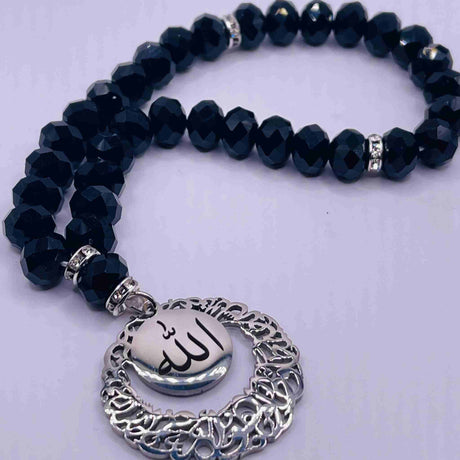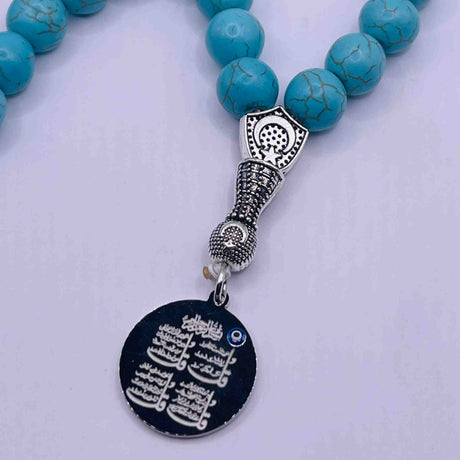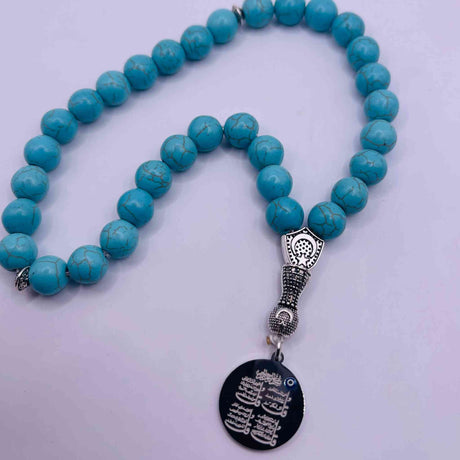Key Takeaways:
-
Spiritual and Sins Erasing Benefits: The Tasbih prayer is a profound act of worship in Islam, offering not only the potential for sins to be forgiven—ranging from the past and present, intentional and unintentional, minor and major, but also a way to form a closer connection with Allah.
-
Method and Recitation: The prayer consists of four Rak'ahs, with specific Tasbih recitations totaling 300 times throughout the prayer to enhance spiritual mindfulness and connection.
-
Controversial Authenticity: While highly valued by many, the authenticity of Salat-ul-Tasbih has been a subject of debate among scholars, with some questioning its origins and recommending other well-established prayers instead.
Benefits of performing the Tasbih prayer include:
-
Weighing the Scales of Good Deeds: The Tasbih prayer helps in weighing the balance of good deeds in the afterlife, as mentioned in a hadith where Prophet Muhammad said that certain phrases are easy to recite but heavy on the scales of good deeds.
-
Heavenly Savings: Performing Tasbih leads to the accumulation of savings in the form of a date palm garden in heaven, as stated in a hadith that mentions the planting of a date palm tree in paradise for those who recite specific phrases.
-
Erasing Sins: Tasbih prayer is believed to have the power to erase sins, including initial and final sins, old and new sins, unintentional and intentional sins, small and large sins, secret and overt sins, and 10 other types of sins.
-
Disease Prevention: There is a hadith indicating that reciting specific sentences during Tasbih can help prevent diseases, including sadness, leprosy, common diseases, spots, and paralysis due to brain hemorrhage.
These benefits underscore the spiritual and physical advantages associated with the regular performance of Tasbih prayer in Islamic tradition.
To deepen your understanding and practice of Tasbih and other Sunnah prayers, consider the book "Himpunan 110 Solat Solat Sunat" by Ahmad Abdul Al-Tahtawi. This comprehensive guide offers detailed insights into various Sunnah prayers, enhancing your spiritual journey.
The book, translated by Windi Khaldun M.A and reviewed by the Al-Hidayah Editorial Panel, serves as an invaluable resource for anyone looking to expand their knowledge and devotion in Islamic worship. Its 128 pages are a treasure trove of wisdom, guiding readers to draw closer to Allah through voluntary deeds and prayers.
Explore the profound spiritual journey of Salah-ul Tasbih, a prayer that deepens your connection with Allah through forgiveness and Dhikr. With its unique methodology of reciting a specific Tasbih 300 times across various positions, this prayer aims to purify the soul and bring the worshiper closer to the divine. For those seeking to enhance their spiritual practice, consider incorporating exquisite Tasbih Prayer Beads from AlHiqma, designed to assist in maintaining focus and counting during this enriching form of worship.
Frequently Asked Questions:
Q: What is the Tasbih to be recited during Salat-ul-Tasbih?
A: The Tasbih recited is "Subhaan Allahi Wal Hamdulillahi Wa Laa ilaha illal Laahu Wallahu Akbar," emphasizing glorification and praise of Allah.
Q: How many times is the Tasbih recited in Salat-ul-Tasbih?
A: The Tasbih is recited 300 times throughout the four Rak'ahs of the prayer, distributed in a specific sequence during each posture of the prayer.
Q: Can Salat-ul-Tasbih be performed at any time?
A: Yes, it can be offered at any time of the day except during the forbidden times (such as at sunrise and sunset), although it is preferred before the Dhuhr prayer.
Q: Is Salat-ul-Tasbih accepted by all Islamic scholars?
A: The authenticity and recommendation of Salat-ul-Tasbih are subject to debate among scholars. While some narrations support its virtues and encourage its performance, others question its authenticity, suggesting that it is not found in the most reliable collections of hadith.
Q: How often should Salat-ul-Tasbih be performed?
A: The Prophet Muhammad (PBUH) advised that it be performed daily if possible. If not, then weekly, monthly, yearly, or at least once in a lifetime according to one's ability.


























